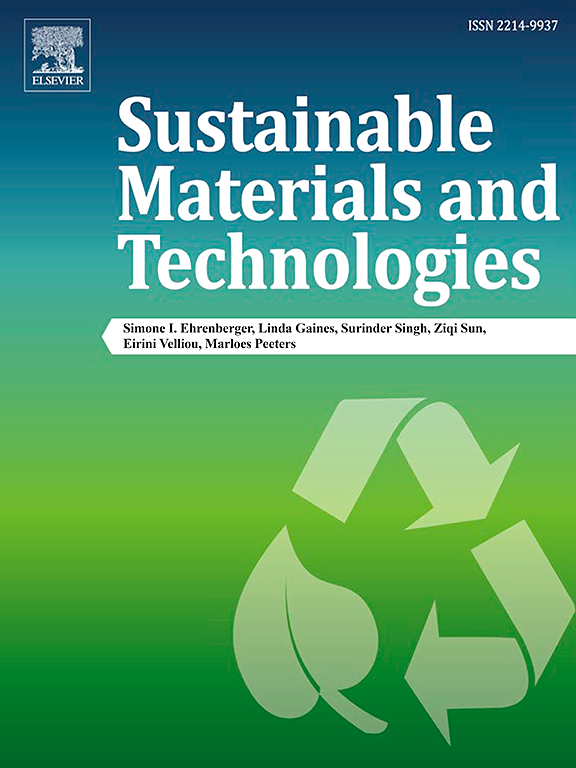利用机器学习揭示低碳混凝土的自然碳化和加速碳化之间的关系
IF 9.2
2区 工程技术
Q1 ENERGY & FUELS
引用次数: 0
摘要
了解加速碳化和自然碳化之间的关系对于准确预测混凝土在实际条件下的长期抗碳化性能至关重要。然而,这种关系高度依赖于材料特性,混合设计和环境暴露,使得广义相关公式的发展不现实和不可行。为了解决这一复杂性,本研究提出了一个机器学习框架,以估计特定于混合设计和区域相关气候暴露的“低碳”混凝土的相关指数。两个概率深度学习模型在预测自然和加速碳酸化深度方面的测试R2为0.95,用于进行768次碳酸化模拟。结果表明,开发的模型提供了一种独特的能力,可以将不同加速测试条件下(例如,二氧化碳浓度)混合物的碳化率与特定区域气候暴露下相同混合物的碳化率联系起来。该框架为快速评估低碳混凝土的长期碳化提供了实用工具。本文章由计算机程序翻译,如有差异,请以英文原文为准。
Unravelling the correlation between natural and accelerated carbonation of low-carbon concrete using machine learning
Understanding correlation between accelerated and natural carbonation is paramount to accurately predicting concrete's long-term carbonation resistance in real-world conditions. However, this relationship is highly dependent on material properties, mix design, and environmental exposure, making the development of a generalized correlation formula unrealistic and nonviable. To address this complexity, this research proposes a machine learning framework to estimate the correlation index for “low-carbon” concrete specific to mix design and regionally relevant climatic exposures. Two probabilistic deep learning models, achieving testing R2 of 0.95 in predicting natural and accelerated carbonation depths, were utilized to perform 768 carbonation simulations. The results demonstrate that the developed models provide a unique capability to link the carbonation rates of mixtures under different accelerated testing conditions (e.g., CO2 concentrations) to the carbonation rates of the same mixtures under region-specific climatic exposure. This framework offers a practical tool for the rapid evaluation of long-term carbonation in low-carbon concrete.
求助全文
通过发布文献求助,成功后即可免费获取论文全文。
去求助
来源期刊

Sustainable Materials and Technologies
Energy-Renewable Energy, Sustainability and the Environment
CiteScore
13.40
自引率
4.20%
发文量
158
审稿时长
45 days
期刊介绍:
Sustainable Materials and Technologies (SM&T), an international, cross-disciplinary, fully open access journal published by Elsevier, focuses on original full-length research articles and reviews. It covers applied or fundamental science of nano-, micro-, meso-, and macro-scale aspects of materials and technologies for sustainable development. SM&T gives special attention to contributions that bridge the knowledge gap between materials and system designs.
 求助内容:
求助内容: 应助结果提醒方式:
应助结果提醒方式:


